Discussions of firepits at vacation rentals can get quite heated. Many view a firepit as a valued source of family bonding, s’mores, ambiance, and relaxation. On the other hand, relaxation is the last thing some homeowners think about when imagining their guests with an open flame at their beloved home!
Because this is such a hot button issue that many won’t even touch with a 10-foot hot dog roasting stick, we thought we’d dig in for you and lay it out – the good, the bad and the ugly.
The Good
Firepits certainly have many appealing qualities that could be an added bonus to your Cape or Islands home. These days with people wanting to socialize outdoors, they are an amenity that people are searching for. They add another easy, relatively inexpensive layer as a fun activity for a memorable vacation.
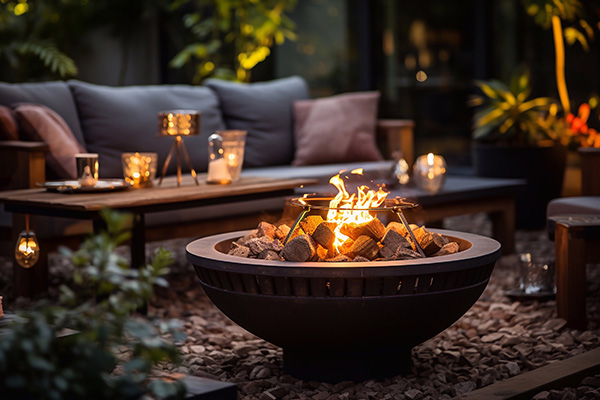
There seems to be no end to the options available out there. You can choose a propane gas fired setup that turns on with a switch, is fairly well contained, and, for most people (those who are familiar with propane at least), is straightforward to use.
Or there are the wood burning options in which you can go as simple as a ring of stones or an open, metal pan to contain the fire. There are also fancier options for wood burning: some are portable, have cooking grates, roasting sticks, hooks to hang your roasting chili peppers. There’s even a super-efficient, secondary burn firepit that reduces smoke and provides a more pleasant experience.
You can also choose a chiminea or an outdoor fireplace for a different sort of ambiance. These will also avoid the smoke by chimneying it up and away.
The Bad
While firepits are fun and usually pretty easy to install, make sure you think about everything that could happen with the firepit after installation. Go the extra mile to cover all of the safety measures.
Remember that all visitors may not have experience with fire or fire safety knowledge. Think: the renter from the city who puts logs on the propane fire pit. Also, keep in mind that a backyard firepit could lead to loud, outdoor, late-night gatherings. And lastly, they are one more thing to maintain, clean up, and prep during turnovers.
- Safety and Prevention
Here are some of the safety issues to be aware of: Thoroughly inspect the area where your firepit will be to address all the important safety concerns. Make sure the firepit is on level ground. Keep it away from low branches, or trim back low tree branches as needed. Make sure your guests are aware of our windy conditions here on the Cape and Islands. Fires should be doused with water or sand before they are left unattended. Embers can turn back into a fire with wind if they aren’t fully out. Avoid soft woods like cedar so sparks don’t go flying on your shed, deck, the woods, or worse – your neighbor’s house. Make sure there is adequate supplemental lighting around the fire to prevent trips and falls.
- Add some guidance to your home manual
You’ll want to clearly spell out the parameters for using your firepit. Where can vacationers take wood from, and where should they not take wood from; e.g., your ornamental cherry tree or magnolia tree that just so happen to be located near the firepit. Be sure your guests know where and how to dispose of ashes. Nobody wants a melted Nauset Disposal toter. If you have a portable firepit, make sure they know if it is okay to move the portable pit onto the wood deck so they can be close to the chairs. Can they bring your firepit to the beach? Be sure to spell out your quiet hours, too.
You also might want to add an addendum to your lease for further legal protection (let us know if you’d like a copy of our sample Addendum). And inform your insurance agent to be sure you’re adequately covered.
The Ugly
We’ve covered the fun and the safety, and now we’ll touch on the risks. There are many risks even if you are well prepared.
- Before you proceed
You’ll want to check town ordinances and burn warnings. Towns and more densely populated areas have different allowances requirements. There are also occasionally high-risk times for fires when open flames are not allowed during either windy conditions, storms, or drought periods. You’ll want to consult your homeowners’ insurance and your commercial Insurance provider to see what is covered. You’ll also want to check to be sure you have firepits covered by a clause in your lease.
- In case of emergency
You’ll want to have an outdoor fire extinguisher nearby. You can buy an outdoor box to hold the extinguisher to make it very visible and protect it from the elements. It’s also a good idea to have some sand and a shovel nearby. It’ll be there for a potential emergency, and hey, it adds to the ambiance, too, right?
And for those of you who are too scared to go for the firepit, you could always just roast your marshmallows on a DIY mini firepit.
If vacationers specifically ask for a firepit and you don’t offer one, you can let them know that many National Seashore beaches offer permits for evening fires. This keeps the noise, the smoke and the risks far from your property.
Whatever you choose, we hope for lots of family bonding and many s’mores in your future!
WeNeedaVacation.com listings with firepits and fireplaces.
They don’t need to be fancy to be fun!
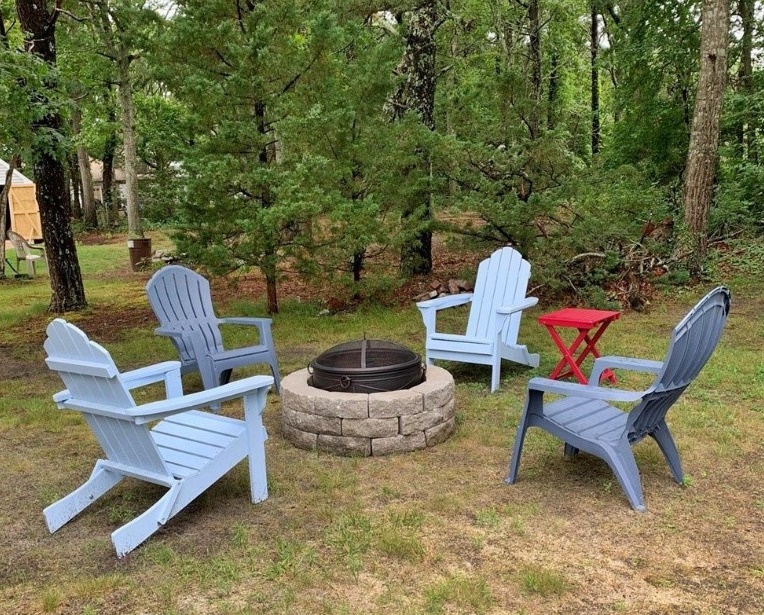
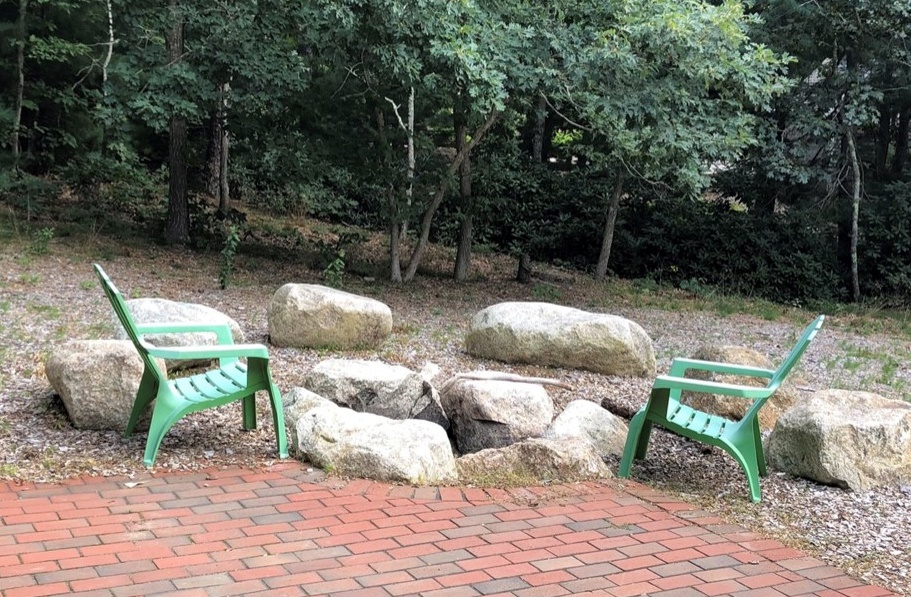
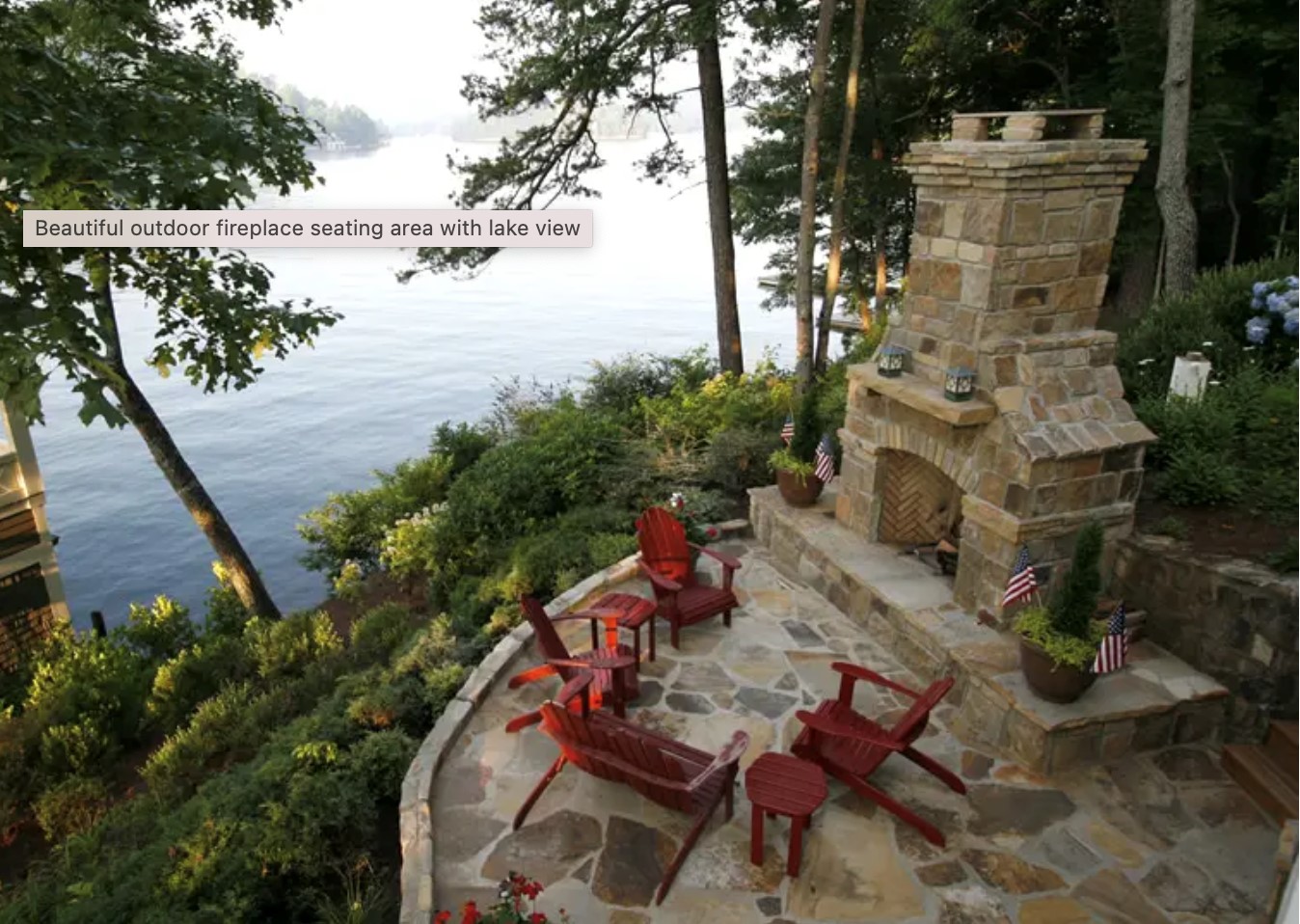

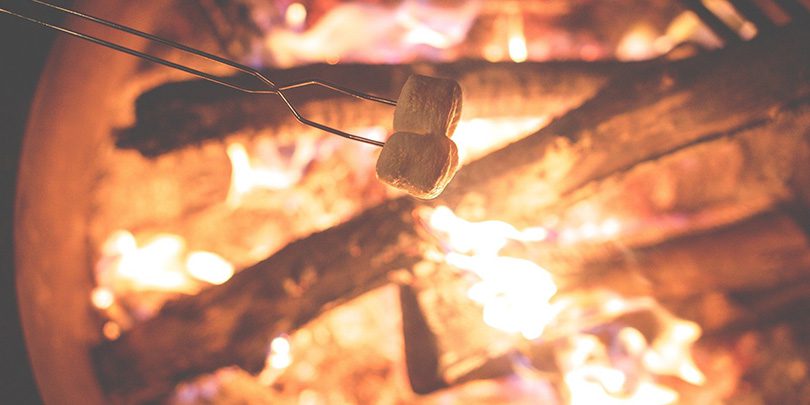






I’m glad that you shared this helpful information with us.